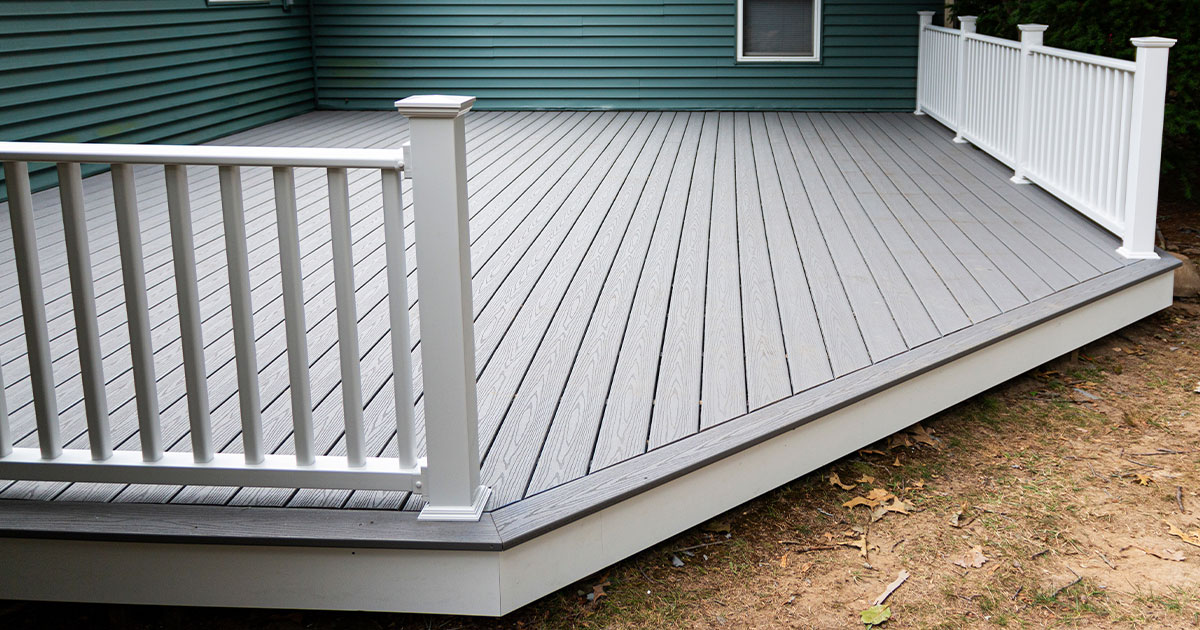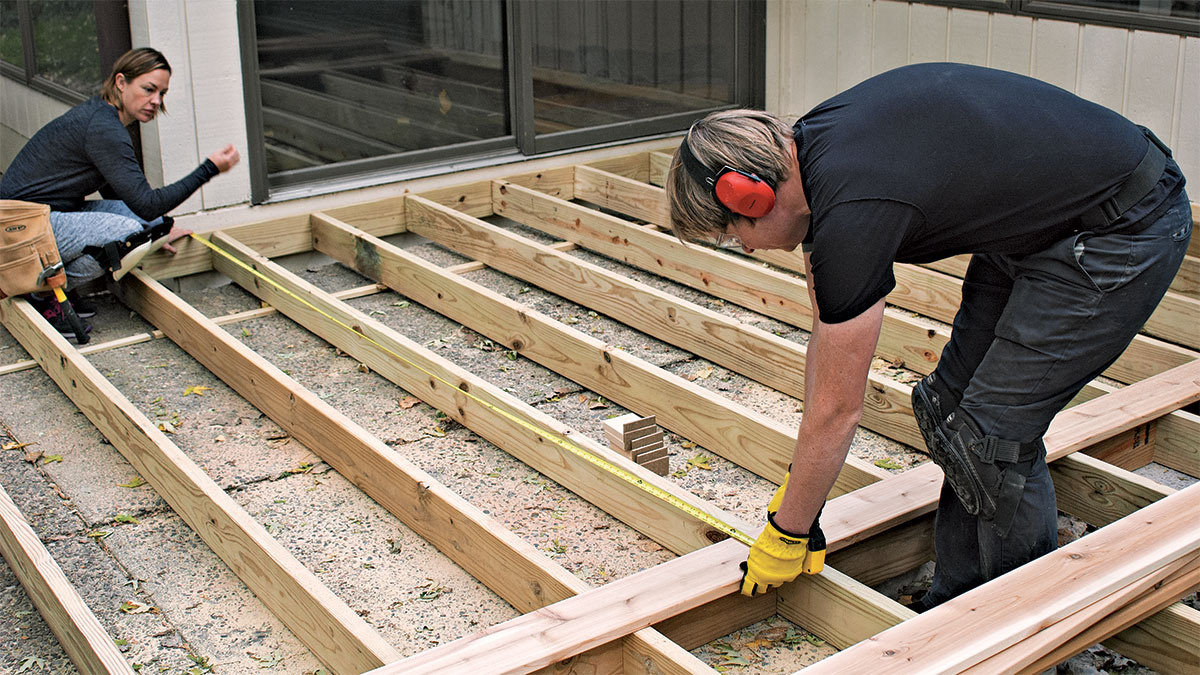How to Pick the Right Materials for Your Deck Setup Project
Selecting the suitable products for your deck installation task can appear challenging. There are countless aspects to think about, from longevity and upkeep to appearances and environmental effect. The choice between standard timber and composite products, each with its own set of advantages and drawbacks, can be especially challenging. The key is to balance your budget, design preferences, and way of living needs to create a deck that will certainly enhance your outside space for several years ahead.
Comprehending the Various Kinds Of Deck Products
When embarking on a deck installment task, the choice of products comes to be a crucial choice. Composite materials, on the other hand, are a mix of timber and plastic, giving toughness and resistance to weather aspects. By comprehending these distinctions, home owners can make a much more enlightened choice on the most appropriate deck material for their particular demands.
Assessing the Sturdiness and Maintenance Requirements of Deck Products
Evaluating the toughness and upkeep requirements of deck materials is an important step in deck setup. Longevity involves the product's capacity to stand up to harsh weather, damage, and its durability. For example, cedar and redwood are normally immune to rot and insects, making them durable choices. On the other hand, pressure-treated timber, while durable, may call for even more maintenance as a result of its sensitivity to breaking and buckling.
Understanding upkeep demands is just as vital. Some products need regular securing or tarnishing to maintain their appearance and resist dampness damages, while others, like composite outdoor decking, require much less upkeep. By evaluating these factors, one can select the most appropriate decking material, ensuring an equilibrium between toughness, upkeep demands, and visual charm.
Cost Analysis: Comparing Wood and Composite Decking
Although cost may at first look like a second problem, it is a substantial variable when comparing wood and composite outdoor decking. Wood, typically a cheaper alternative, has a reduced in advance price. However, with time, maintenance costs can collect, possibly making wood a lot more pricey in the long run. These upkeep prices might include staining, sealing, or changing damaged boards. On the various other hand, composite outdoor decking, while costlier initially, needs less upkeep, possibly reducing lasting expenses. It's vital to bear in mind that composite outdoor decking isn't resistant to put on and tear, and substitute prices can be high. For that reason, possible deck proprietors must consider their spending plan and readiness to preserve their decks when deciding in between wood and composite outdoor decking.
Visual Appeals and Layout Flexibility of Decking Products
Natural wood decking offers a classic, classic look, while composite materials provide a broad variety of shades and structures to suit varied preferences and styles. Compound materials, while less adaptable in style, are still versatile sufficient for the majority of deck designs. These elements, for that reason, are vital determinants in the option of outdoor decking product.
Ecological Impact of Decking Materials
When choosing outdoor decking products, one need to take into consideration not only visual appeals and durability, learn this here now but additionally the ecological effect. It is essential to analyze the sustainability of products and check out recycled decking choices. Understanding the potential influence on local environments will certainly ensure an extra environmentally responsible selection.
Analyzing Material Sustainability
In the realm of deck construction, examining product sustainability is a vital action. Composite decking materials usually integrate wood and plastic, minimizing the demand for brand-new lumber yet increasing dependence on fossil gas - deck installation austin. Hence, the option of decking products ought to balance capability, looks, expense, and sustainability to make sure a liable and long-lasting installment.
Recycled Decking Choices

Compound outdoor decking is particularly prominent due to its sturdiness and ease of maintenance. Recycled plastic outdoor decking, on the other hand, is highly resilient and needs minimal upkeep.

Influence On Local Environments
While the benefits of utilizing recycled materials for outdoor decking can not be overemphasized, it's just as vital to think about the broader ecological implications of these selections. The extraction, handling, and transport of materials can greatly impact neighborhood ecosystems. Logging for hardwood decking adds to habitat loss and climate change. Also the manufacturing of composite products can launch unsafe emissions. Conversely, utilizing recycled or sustainably sourced products can assist alleviate these impacts. Thinking about the lifespan of products can lower ecological influence; longer-lasting options need much less frequent replacement, thus preserving resources. Finally, correct disposal of old outdoor decking is essential to decreasing land fill waste (deck installation austin tx). Basically, an eco-conscious deck job needs cautious product selection, lasting sourcing, and accountable disposal.
Making Your Decision: Tips for Choosing the very best Deck Products
As the short article changes into the subtopic of "Making Your Decision: Tips for Picking check it out the Best Deck Materials", it is essential to recognize the selection of deck materials offered. Striking an equilibrium between sturdiness and appearance is vital in this option procedure. The following conversation will direct readers in making an educated option based upon these crucial considerations.
Recognizing Various Deck Products
The job of picking the right products for your deck installment can appear discouraging as a result of the vast range of choices available. Comprehending the different materials can streamline this procedure. Wood is a prominent option, using a traditional aesthetic and price. Sorts of timber made use of include pressure-treated lumber, cedar, and redwood. Composite products, made from a mix of wood and plastic, are low-maintenance and immune to rot and pests. Plastic or PVC decks are a lot more durable and call for much less maintenance than composite materials, yet they can look much less natural. Light weight aluminum decks are strong, light-weight, and resistant to rot, yet they are likewise the most expensive choice. Each material has its own advantages and disadvantages, making it essential to consider your specific requirements before making a decision.
Toughness vs. Aesthetic Appeals Equilibrium
Stabilizing longevity with visual appeals can be a difficulty when selecting deck materials - deck installation. High-traffic locations may demand long lasting products like composite decking, which endures wear and tear but might lack the all-natural elegance of timber. House owners need to strike an equilibrium, thinking about both the deck's practical needs and their visual preferences.
Conclusion
To conclude, picking the best products for your deck installation job calls for mindful consideration of elements such as durability, maintenance, price, visual appeals, and ecological influence. Whether you select typical wood or composite materials, your choice ought to line up with your spending plan, layout choices, and lifestyle. Eventually, the most effective decking product is one that improves your outside space and offers satisfaction for years ahead.